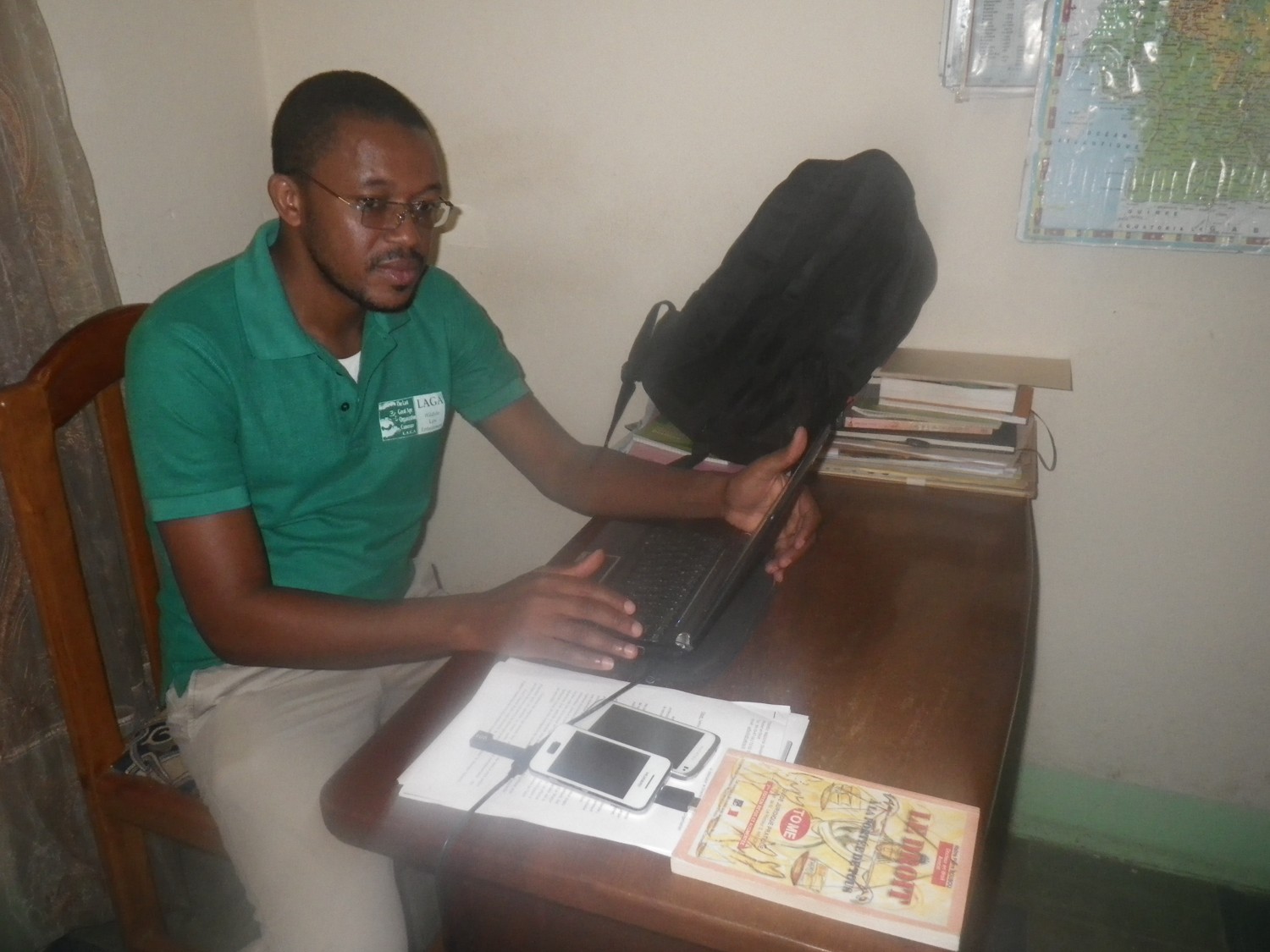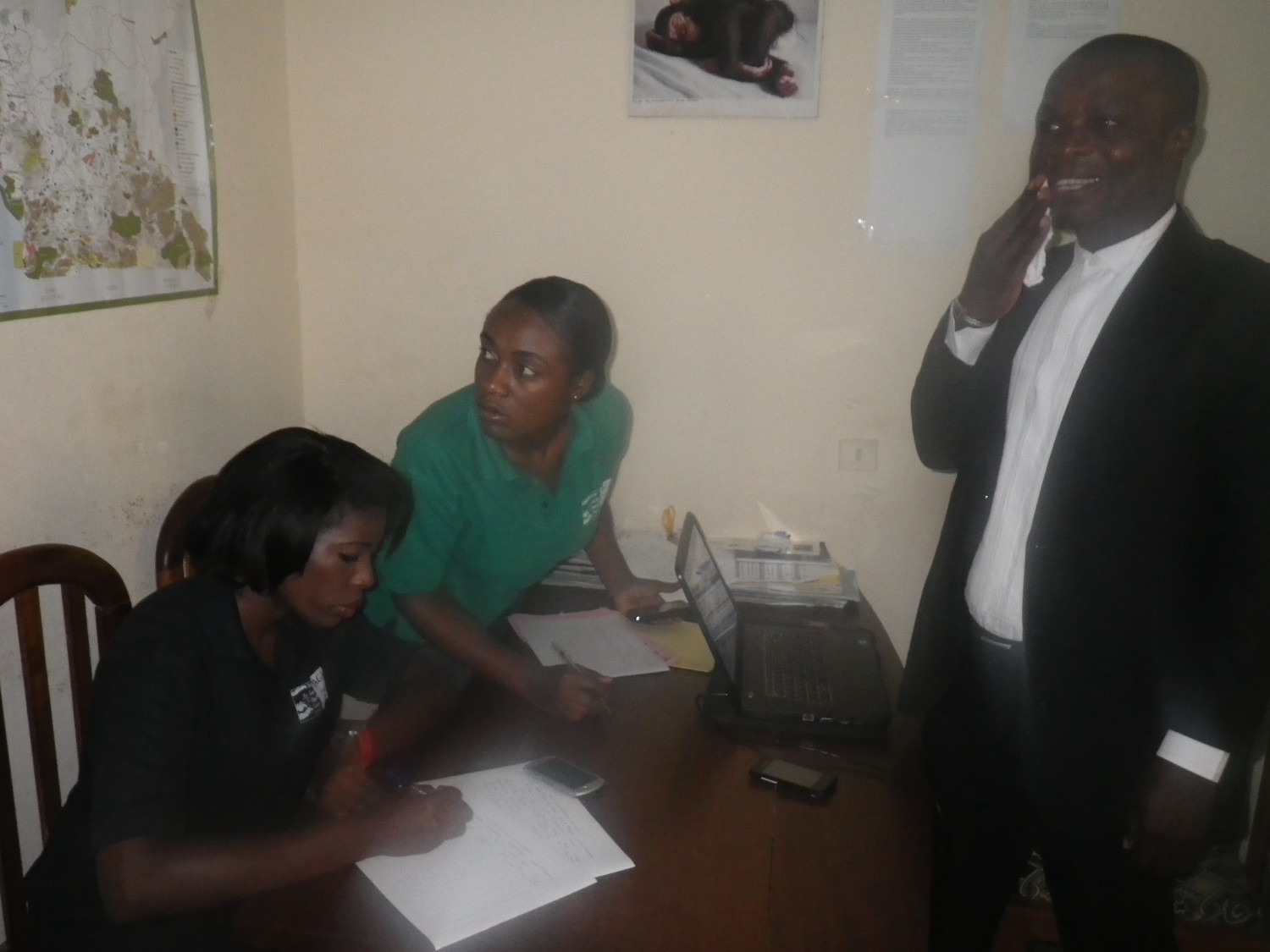Legal folow up
It starts with supervision and follow-up of all legal procedures. Supervision and assistance in writing of complaint reports against subjects arrested.
LAGA legal advisers assist MINFOF agents with writing the complaint report to avoid errors, deal with expected weaknesses of the case, and strengthen the legal arguments. The legal advisers start their work on a case before the operation by preparing the legal system for receiving the case and evaluating threats of corruption and governance problems. At this stage they are also ensuring the arresting force is acting legally in obtaining arrest or search warrants needed. Next is guiding the arresting officer for specific legal elements needed in the interrogation and the complaint report. The legal advisers are frequently in the field in the time of operation and are often accompanying the arrest and interrogation. They are supervising the transmission of the case to court and communicate with the legal unit of the ministry and the administrative side of the court to ensure understanding and identify possible problems. Sensitizing the administrative side of the legal system through meetings and distribution of materials, and soliciting high level of supervision to ensure good governance in court procedures.

This is a long-term process which aims at creating a network of active collaborators at a high level within the court. Nurturing these relationships requires many personal meetings and establishment of regular communication with courts nationwide. Regular distribution of technical information materials already developed by LAGA – including booklets detailing and explaining Cameroonian wildlife law, CDs containing the full text of Cameroonian wildlife laws, copies of the recently launched Wildlife Justice Magazine, and legal articles from other sources – are used to keep this communication active.
Assisting the legal representation of the cases through legal analysis and advice and support of lawyers’ fees.


LAGA’s legal unit produces a legal analysis of each case with legal argumentation and aggravating circumstances, a situation-response analysis of how to respond to possible arguments from the accused, and a recommended demand of damages. These files are distributed to all collaborators involved in the legal procedures. LAGA is involved in appointing a lawyer on the case and provides 25% of his fees. LAGA's legal advisers instruct the lawyer on prosecution strategy and is present in all hearings where debates are held in order to modify the strategy according to developments in the case. The Government of Cameroon does not have public prosecutors and in the past has relied on a representative to appear in court to prosecute wildlife crime cases. The representative is not a lawyer and the lack of professionalism results in many strong cases being lost in court. LAGA has therefore assisted the Government to INVEST in hiring a private lawyer for all cases. LAGA has pledged to give 25% of the fees for this independent professional, in order to support the government and help demonstrate the effectiveness of the system. These payments will only be necessary in the short term, as the program is designed to reach sustainability in a few years providing the government with a proven cycle that covers all legal costs with damages awarded.
As part of LAGA’s comprehensive legal follow-up activities, offenders who are convicted and sentenced to a jail term are visited regularly to ensure that custodial sentences are served in full and to monitor human rights issues whilst they are in custody. The performance of the collaborators is regularly cross checked, with information that arrives from the MINFOF delegations, courts, lawyers and surprise check ups of our team to insure reliability of the system.
Ensuring damages awarded are paid through work with court bailiffs.
The awarding of damages procedure is complex and long, and involves small fees to be paid for its execution. LAGA’s legal advisers are working on a daily basis with court administrative officials and bailiffs in pushing the cases through this process. Receiving revenue from wildlife court cases is crucial for securing sustainability of employment of lawyers.
